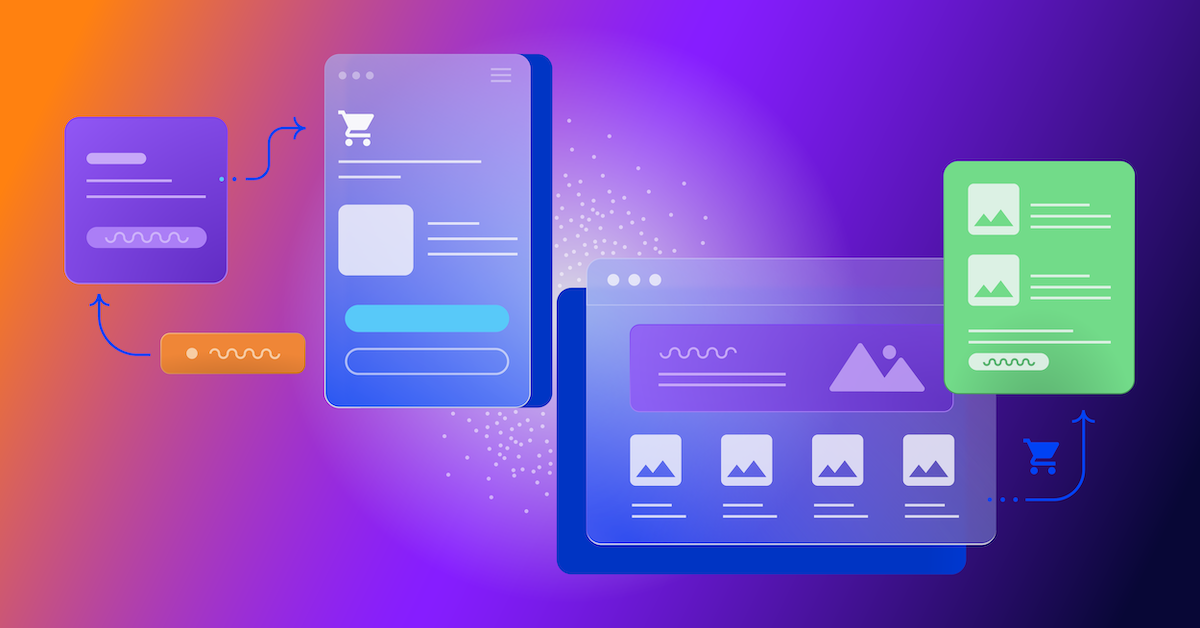How do I reach prospects when no one is in the office?
It’s tough out there for a marketer. In the wake of the global COVID-19 pandemic, marketers are facing unique challenges. Hosted events and sponsorships that drive a significant amount of deals have either been postponed or moved online. Outbound calls are left unanswered as most companies have called on their staff to work from home (rightfully) to prioritize health and safety. In this “new normal” of remote work, that may last well beyond the current crisis, other channels such as your website must work harder to make up for the soft results of events and outbound.

Kevin Li

Unfortunately for marketers, it’s not that simple. Consider this thought from a fellow B2B marketer:
"This whole everyone-working-from-home thing will be a great test for ABM IP address anonymous visitor identification providers. Will their personalization fall apart due to everyone being at home instead of in a known business office location?"
Like many other marketers, you’ve likely spent the last few years applying the concepts of account-based marketing (ABM) to your website. The premise of ABM for your website is straightforward: targeting a visitor from a particular industry or company with relevant content is better than a one-size-fits-all approach where everyone sees the same thing. What sits behind this type of ABM execution is a reverse-IP capability that is able to map the IP address of a visitor (which every visitor has) to a specific company.
For example, the IP address 103.255.140.0 maps to Microsoft and therefore if I see a visitor accessing my website from that IP address, I’ll know that it’s someone from Microsoft. This is extremely valuable information I can then use to target that visitor, such as making sure my site only shows content for the enterprise (which fits Microsoft) or prioritizing case studies for the technology industry (which also fits Microsoft) for this particular user.
This simple concept of mapping visitors to known IP addresses of companies is so critical that it underpins almost all marketing execution and measurement in the field of ABM. Not only that, even related marketing programs such as third-party intent providers heavily rely on reverse-IP matching to deliver signals on whether or not an account is currently researching specific solutions based on content consumption across publishers.
But what happens when B2B decision makers, influencers and users are all working from home?
Home-based IP addresses don’t map to companies (technically speaking, they do, they just map to your internet service provider such as Comcast, Verizon, AT&T, etc., which is not useful for B2B targeting). For context, prior to the current situation, only about 30 percent of web visitors to a B2B website can be mapped to distinct companies that are useful for targeting. What happens now when corporate parks sit empty, badges aren’t scanned in office buildings and instead everyone is trading tips on how to stay productive while at home?
What can marketers do to keep their website as relevant as possible during this time?
We recommend marketers who rely solely on reverse-IP capabilities to drive personalization programs conduct an audit of the current situation. Most reverse-IP vendors offer simple-to-integrate solutions to your web analytics provider (e.g., Google Analytics, Adobe Analytics) so you can see how many visitors on your website can be mapped to companies of interest. Keep an eye on that match rate going forward as more and more companies are encouraging their staff to work from home. Managing expectations within the marketing team is also a good idea, especially those who may not be intimately familiar with the technology. Be clear that while reporting could show a dip in target accounts visiting your website due to the work-from-home dynamic, it doesn’t necessarily mean that prospects from target accounts are not visiting your website. They may be, you just can’t tell right now. Keep an eye on overall traffic during this time as that’s a more telling indicator.
However, bear in mind that your website is likely less relevant now that the account-based data used to power personalization has degraded. It may be timely to explore other tools that solve the problem of delivering relevant web experience in a better way. For example, our Content Recommendations product here at Episerver remains viable during this time as it operates on a completely different approach from the ground up. We don’t say this to capitalize on extreme circumstances but rather to give a real solution to a real-world problem.
Different every step of the way
Instead of relying on an IP address to match to a company for an incoming visitor, Episerver Content Recommendations first uses natural language processing to understand the topics within each piece of content you have and then marries that with an individual user’s clickstream to build a real-time “interest profile.” The data generated here is different in two ways: 1) it’s generated from the user at an individual level instead of stopping at the account-level (relevant for companies that may sell more than one thing to the same account), and 2) it profiles a user’s actual behavior on your site dynamically rather than purely relying on a static mapping of that user’s IP address to a company (relevant as a visitor’s interest may change over time).
Next, the decisioning process is also quite different. Instead of relying on the marketer to codifying manual “if/else” rules (i.e., if visitor is from company A, then show content B) which can either become a tremendous burden or limits the scale of personalization, Episerver Content Recommendations automates that decisioning process by choosing the next-best-content automatically out of a pool of eligible options defined by the marketer. This approach allows the marketer to focus rightfully on the strategic question of what types of content should I make available to my visitors for different placements instead of handling the mundane task of manually account for every single permutation of visitor by content (that’s a lot of if/else rules!).
During a time when events are cancelled, outbound results are diminishing and reverse-IP data is affected by work from home dynamics, it may be a good time to consider using first-party intent and automated 1:1 recommendations to drive more results from your website. What’s more, this approach only relies on first-party cookies and is future-proof against upcoming changes to the third-party cookie landscape.
To find out more about how leading marketers use Episerver to understand and deliver 1:1 digital experiences, based on 1st party intent data, download "The enterprise guide to perfected personalization", a white paper authored by Demand Gen Report, after interviewing several customers of Idio, An Episerver company.
